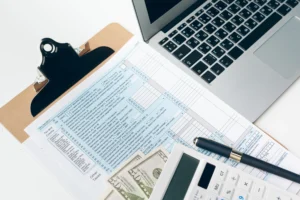
Donating to charity is a key estate planning strategy for many people. It reduces the size of your taxable estate and it can help you leave a lasting legacy with organizations you care about.
The benefit of making such gifts during life rather than at death is that you may be eligible for an income tax deduction. Qualifying for a charitable deduction is, in some respects, a matter of form over substance. The IRS could disallow a deduction, even if it’s otherwise legitimate, if you fail to follow the substantiation requirements to the letter.
If you’ve made charitable donations in 2018, it’s wise to review the substantiation rules as you file your 2018 tax return. Here’s a quick summary of the rules:
Cash gifts under $250: Use a canceled check, receipt from the charity or “other reliable written record” showing the charity’s name and the date and amount of the gift.
Cash gifts of $250 or more: Obtain a contemporaneous written acknowledgment from the charity stating the amount of the gift, whether you received any goods or services in exchange for it and, if so, a good-faith estimate of their value. An acknowledgment is “contemporaneous” if you receive it before the earlier of your tax return due date (including extensions) or the date you actually file your return. Also, there’s no need to combine separate gifts of less than $250 to the same charity (monthly contributions, for example) to determine if you’ve hit the $250 threshold for the contemporaneous written acknowledgment requirement.
Noncash gifts under $250: Get a receipt showing the charity’s name, the date and location of the donation, and a description of the property.
Noncash gifts of $250 or more: Obtain a contemporaneous written acknowledgment from the charity that contains the information required for cash gifts plus a description of the property. File Form 8283 if total noncash gifts exceed $500.
Noncash gifts of more than $500: In addition to the above, keep records showing the date you acquired the property, how you acquired it and your adjusted basis in it.
Noncash gifts of more than $5,000 ($10,000 for closely held stock): In addition to the above, obtain a qualified appraisal and include an appraisal summary, signed by the appraiser and the charity, with your return. (No appraisal is required for publicly traded securities.)
Noncash gifts of more than $500,000 ($20,000 for art): In addition to the above, include a copy of the signed appraisal (not the summary) with your return.
Failure to follow the substantiation rules can mean the loss of valuable tax deductions. We can help determine if you’ve properly substantiated your 2018 charitable donations.
© 2019






